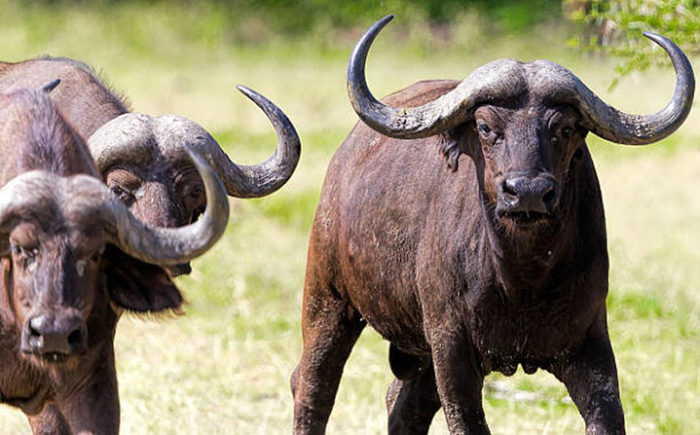California Lawmakers use COVID-19 to Ban African Trophies
May 26, 2020Today, California lawmakers will consider a ban on the import of African big-game trophies and other taxidermy as part of a sweeping bill that uses the Coronavirus pandemic as cover to push forward a new anti-hunting measure.
California State Senator Henry Stern (D-Los Angeles) introduced SB 1175 in February, calling it the “Iconic African Species Protection Act.” The intent of the bill was transparent at the time:
“The goal of these provisions are to reduce the demand for new trophies of certain wild animal species …” (Section 1, subsection b)
However, with the rise of the Coronavirus pandemic, a standalone bill of this nature was unlikely to gain traction. Now, lawmakers have turned the legislation into a public health bill aimed at eliminating live animal markets – with the African trophy ban still tacked on.
On May 13, after several delays in legislative committees, Stern offered an amended version of the bill, now calling it “Animals: prohibition on importation and possession of wild animals: live animal markets.”
The title of the new bill makes no reference to the trophy ban, or indeed to anything related to the original intent of the bill. But – along with bans on the importation or selling of live wild animals or wild animal body parts, for human consumption – the bill would “enact the Iconic African Species Protection Act and would prohibit the possession of specified African species and any part, product, or the dead body or parts thereof, including, but not limited to, the African elephant or the black rhinoceros, by any individual, firm, corporation, association, or partnership within the State of California, except as specified for, among other things, use for educational or scientific purposes by a bona fide educational or scientific institution, as defined.”
The bill conflates possible wild animal disease transmission with African big-game hunting in a ham-handed attempt to use the former to ban the latter.
Two Africa-based wildlife conservation organizations have spoken out against the bill, NASCO, and Campfire Association Zimbabwe, saying that the negative financial impact of a trophy ban would counteract conservation efforts that sustain the wildlife habitats and populations this bill purportedly attempts to protect.
Namibia-based NASCO wrote in opposition to the bill that, “without hunting, conservation would be brought to a close in many communal conservancies which do not have tourism potential and which depend for their income on the hunting of selected animals for trophies. Conservancy income is used to pay more than 600 community game guards who conduct anti-poaching patrols and to provide benefits to conservancy members, thus uplifting living standards in poorer rural communities.”
NASCO continued:
“In summary, the banning of the import of trophies to the State of California will not protect Africa’s wildlife but will, in fact, have a detrimental impact to Namibia’s wildlife population, and most importantly to the livelihoods of the Namibian rural people who depend on this wildlife will be negatively affected.”
The California Rifle and Pistol Association also wrote in opposition to the bill, stating that SB 1175 is unenforceable because it conflicts with federal and international laws that specifically allow for importing African big-game trophies:
“This legislation proposes to impose a civil penalty for activities expressly authorized by the [Endangered Species Act] which allow the import of listed species when the U.S. Fish and Wildlife Service determines that the activity ‘enhances the survival of the species.’ Not only is what SB 1175 proposes in conflict with the federal ESA, it is also in conflict with the Convention on International Trade in Endangered Species of Wild Fauna and Flora (CITES) – an international agreement between governments with the goal of ensuring that international trade in specimens of wild animals and plants does not threaten their survival. Both the federal ESA and CITES wholly preempt state law.”
OUR TAKE
It’s a popular pastime in the California legislature to target legal, safe shooting sports activities, including legal hunting that takes place on an entirely different continent.
Stern, who is the son of actor Daniel Stern (best known for his role as the bumbling burglar Marv Merchants in the Home Alone movies), recognized that his vanity bill aimed at putting a damper on African trophy hunting wouldn’t likely see the light of day. So, he capitalized on the COVID-19 pandemic to push it through anyway.
Stern’s bill will do more harm than good to the animals he says he wants to protect. While we support efforts to reduce potential animal-to-human disease transmission, banning trophy hunting will do absolutely nothing to impact the spread of Coronavirus or any future pandemic virus – but it will absolutely hurt the economic lifeline that protects animal habitats and provides jobs and revenue streams in poorer parts of the world.
Jeremy Mallette is co-founder of International Sportsman. An avid hunter and outdoorsman, he has spent more than a decade in the outdoor industry, from hiking and camping to silencers and hunting. His father taught him to shoot at age six, and he received his first firearm at age eight — a 1942 Colt Commando .38 special revolver. He enjoys yearly trips to Kansas for pheasant hunting, spending time with his children at the deer lease, and collecting unique firearms.

